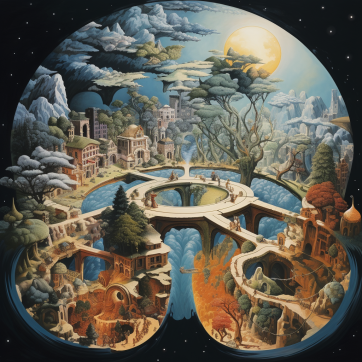Understanding a Multipolar World
A multipolar world refers to a global geopolitical landscape where power is distributed among multiple nations or centers of power rather than being dominated by a single superpower or a bipolar arrangement. In this setting, several states wield significant influence on global decisions, be it economically, militarily, or diplomatically.
Characteristics
- Power Distribution: In a multipolar world, multiple nations hold significant clout, reducing the ability of any single nation to unilaterally impose its will on others.
- Global Governance: A multipolar setting often involves complex negotiations and coalition-building among states. Decisions may be slower to come by due to the need for broader consensus.
- Regional Spheres: Each pole often has its own sphere of influence, typically on a regional level. These can sometimes overlap, leading to tensions or negotiations between poles.
- Economic Ties: Economic interdependencies are generally complex, with significant trade and investment flowing between poles.
Historical Context
During the Cold War, the world was largely bipolar, with power concentrated in the United States and the Soviet Union. Post-Cold War, there was a period when the United States emerged as the unipolar power. However, the rise of China, the European Union, and other emerging economies like India and Brazil has been pushing the world towards multipolarity.
Implications
- Less Predictability: A multipolar world is generally less predictable than a unipolar or bipolar one, as the actions of one pole can have unforeseen repercussions involving multiple other poles.
- Conflict and Cooperation: The poles can either come into conflict over issues like resources and territorial disputes or cooperate in areas like trade and climate change.
- Geopolitical Alliances: We often see shifting alliances and partnerships, as states recalibrate their relations based on changing interests and power dynamics.
Scholarly Perspective
In his book “World Order,” Henry Kissinger states that the concept of multipolarity is not new and has existed in various forms throughout history. He observes, “The nature of the relations among states in a multipolar international system is determined not merely by the existence of several powers but also by the scope of their commitments and the interaction of their strategies.”
A multipolar world is marked by a more complex web of relations and a greater balance of power, but it also brings challenges like increased unpredictability and the potential for conflict. Understanding the dynamics of a multipolar world is critical for both policymakers and scholars as they navigate international relations and global issues.
